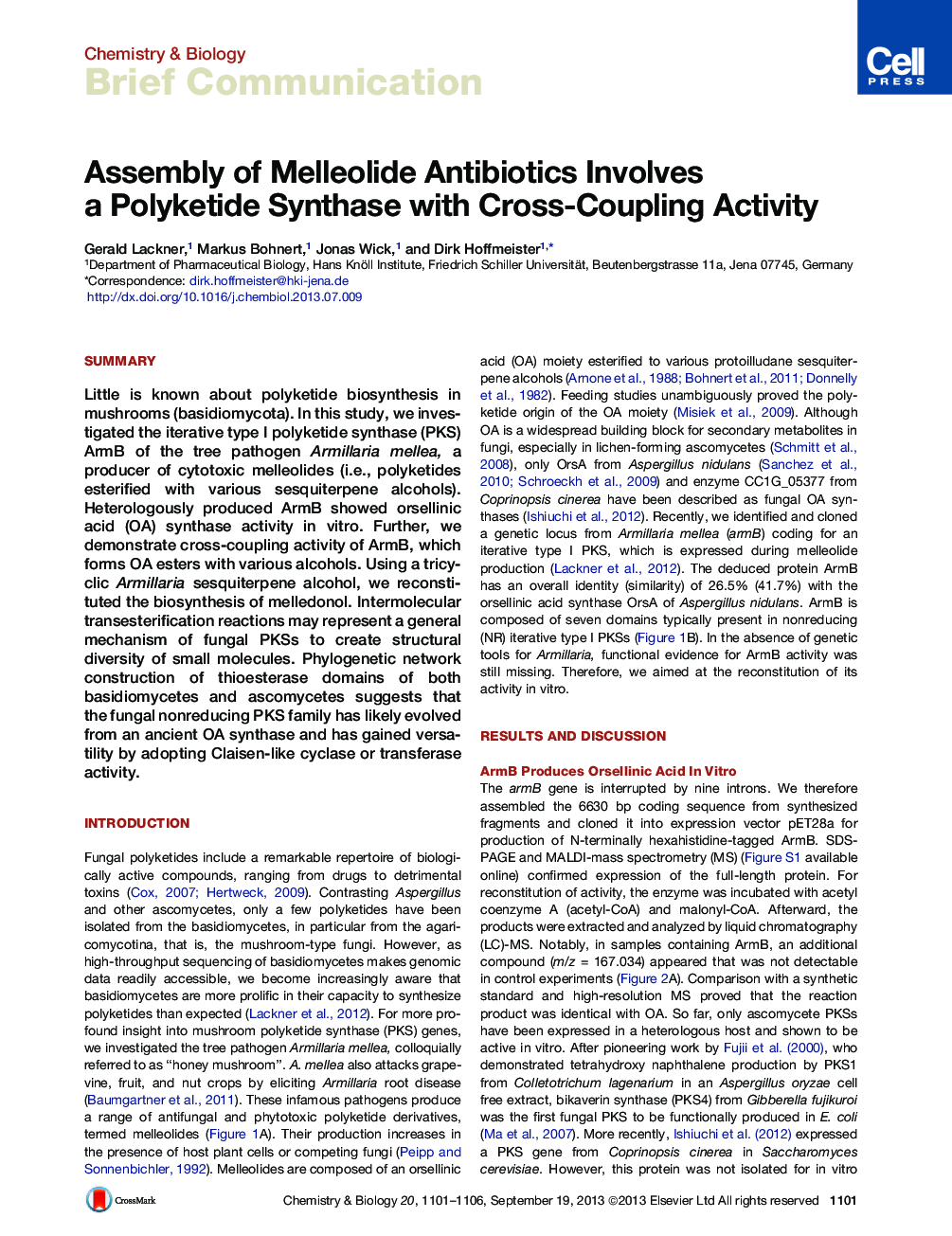| Article ID | Journal | Published Year | Pages | File Type |
|---|---|---|---|---|
| 1391748 | Chemistry & Biology | 2013 | 6 Pages |
•The Armillaria polyketide synthase ArmB produced orsellinic acid in vitro•ArmB has cross-coupling activity with alcohols and yields orsellinic acid esters•A melleolide was formed after addition of a natural sesquiterpene alcohol•Phylogenetic analysis shows thioesterase-mediated diversification for fungal PKSs
SummaryLittle is known about polyketide biosynthesis in mushrooms (basidiomycota). In this study, we investigated the iterative type I polyketide synthase (PKS) ArmB of the tree pathogen Armillaria mellea, a producer of cytotoxic melleolides (i.e., polyketides esterified with various sesquiterpene alcohols). Heterologously produced ArmB showed orsellinic acid (OA) synthase activity in vitro. Further, we demonstrate cross-coupling activity of ArmB, which forms OA esters with various alcohols. Using a tricyclic Armillaria sesquiterpene alcohol, we reconstituted the biosynthesis of melledonol. Intermolecular transesterification reactions may represent a general mechanism of fungal PKSs to create structural diversity of small molecules. Phylogenetic network construction of thioesterase domains of both basidiomycetes and ascomycetes suggests that the fungal nonreducing PKS family has likely evolved from an ancient OA synthase and has gained versatility by adopting Claisen-like cyclase or transferase activity.
Graphical AbstractFigure optionsDownload full-size imageDownload high-quality image (174 K)Download as PowerPoint slide
